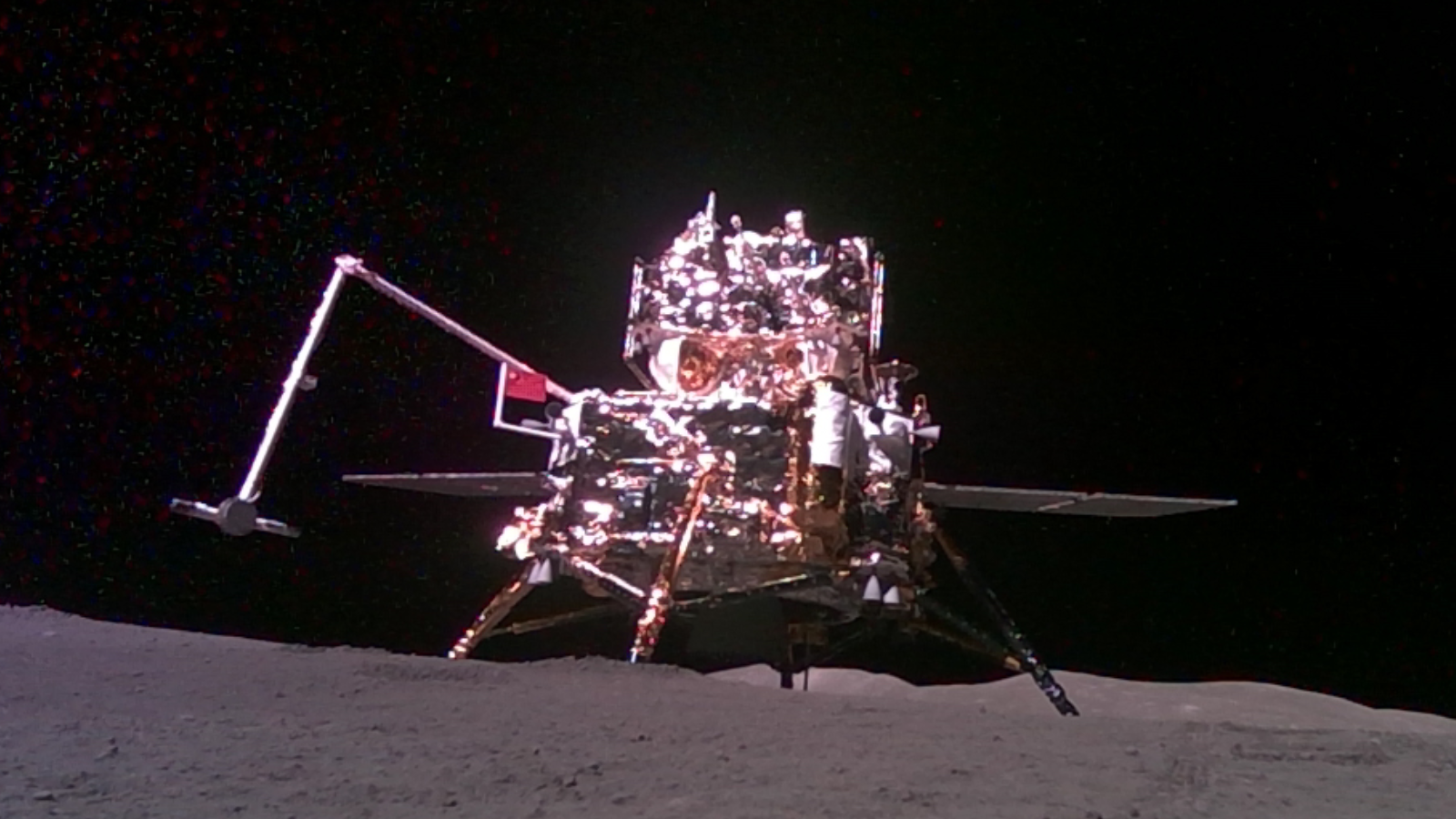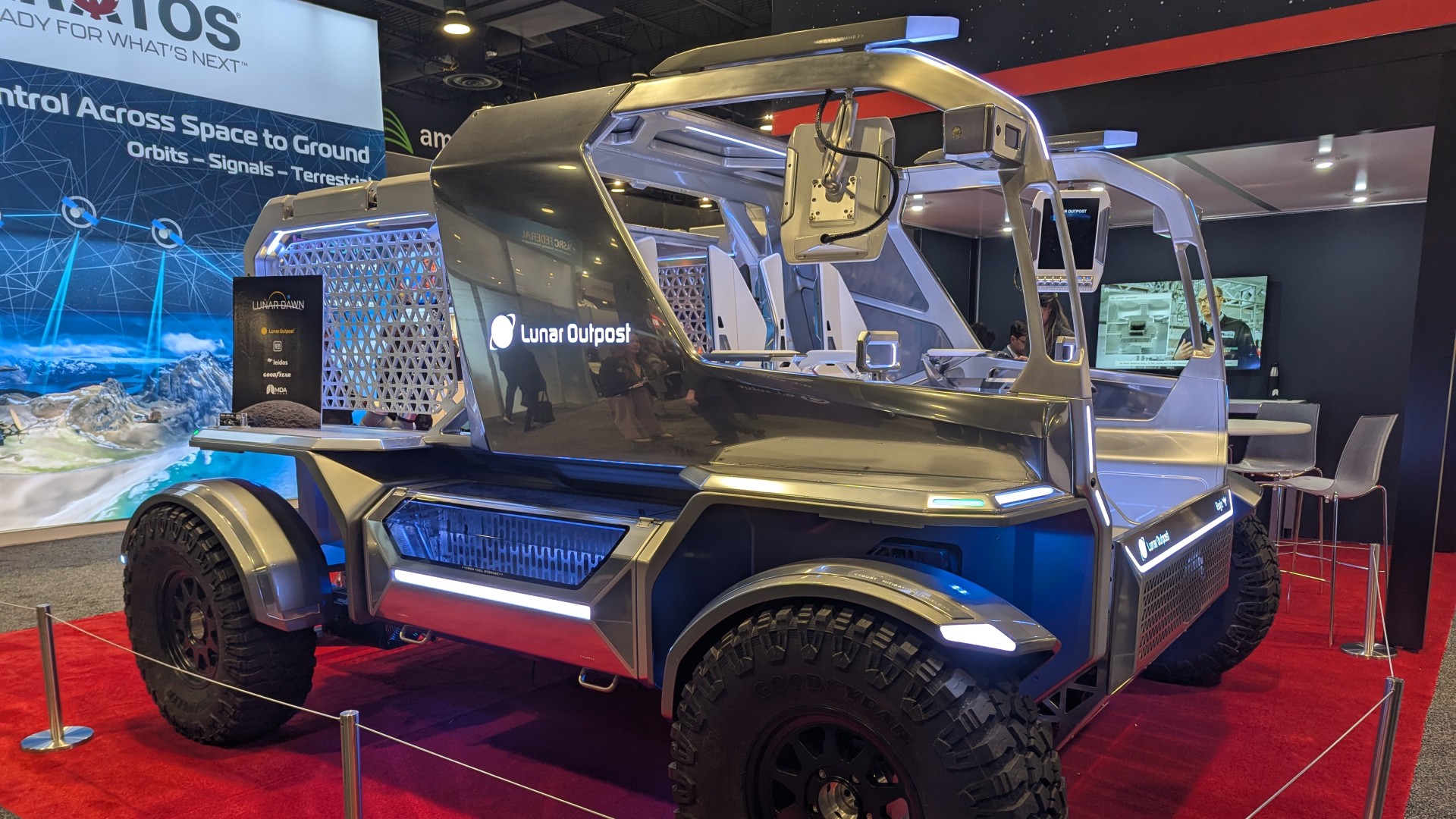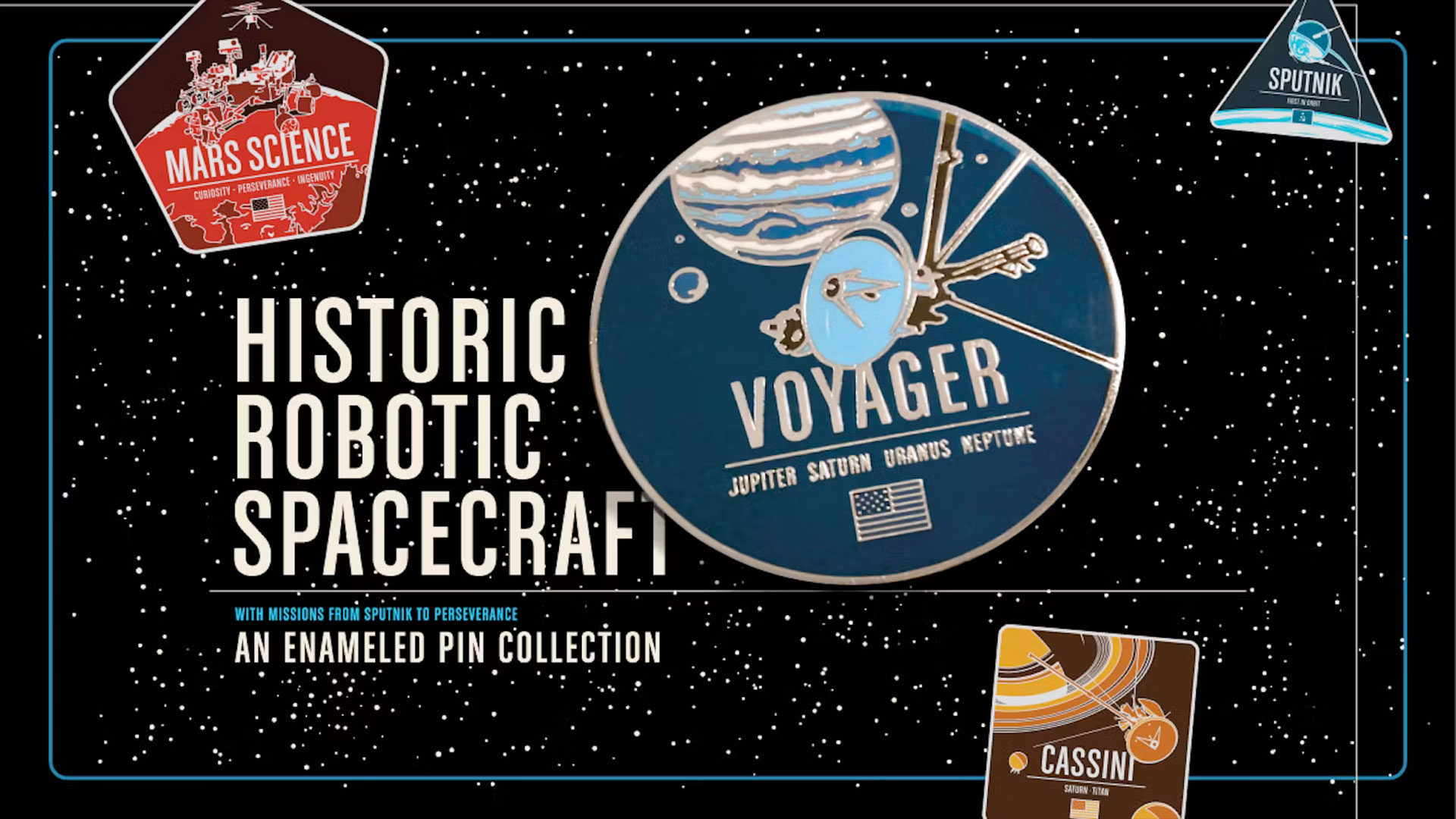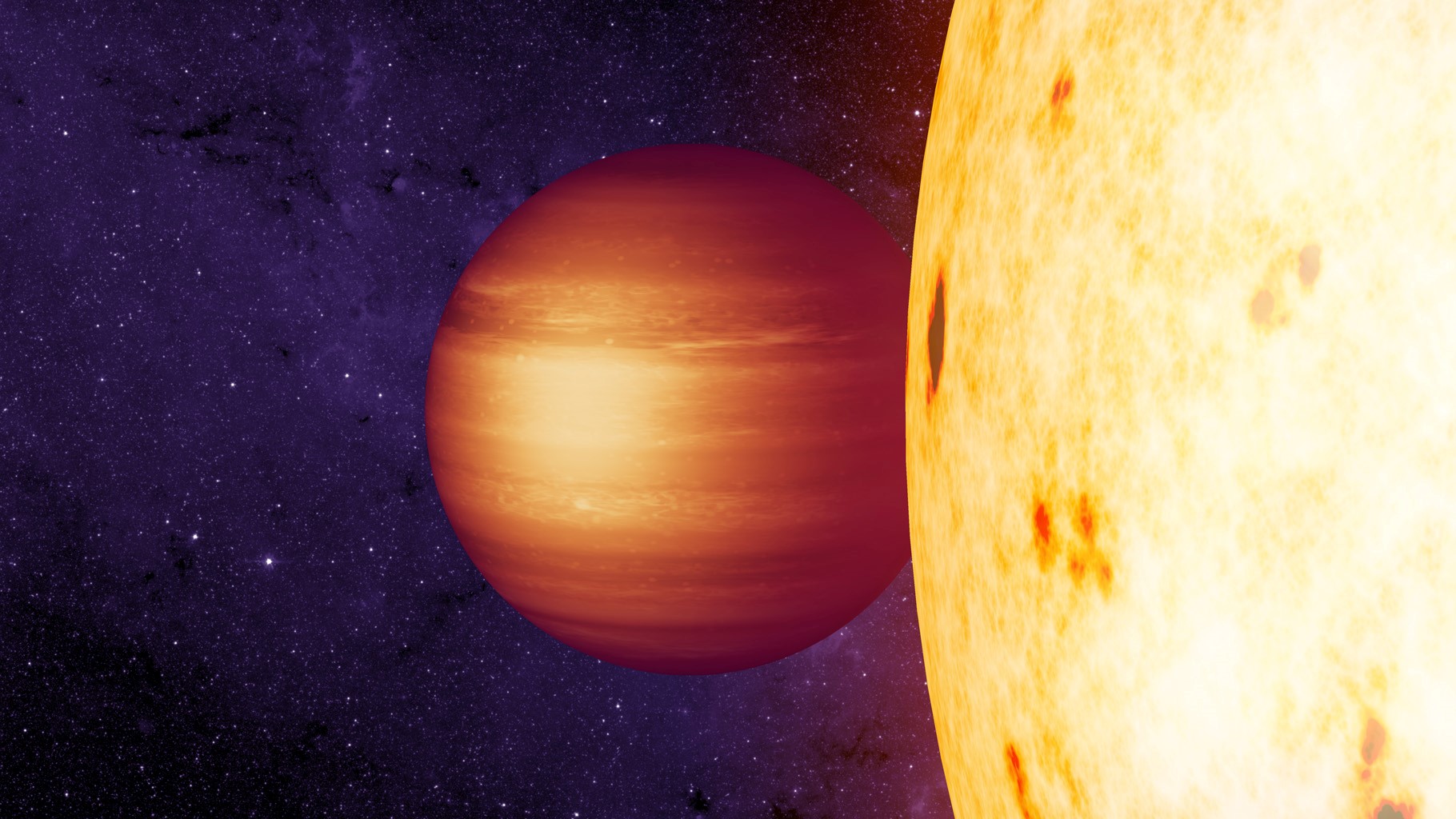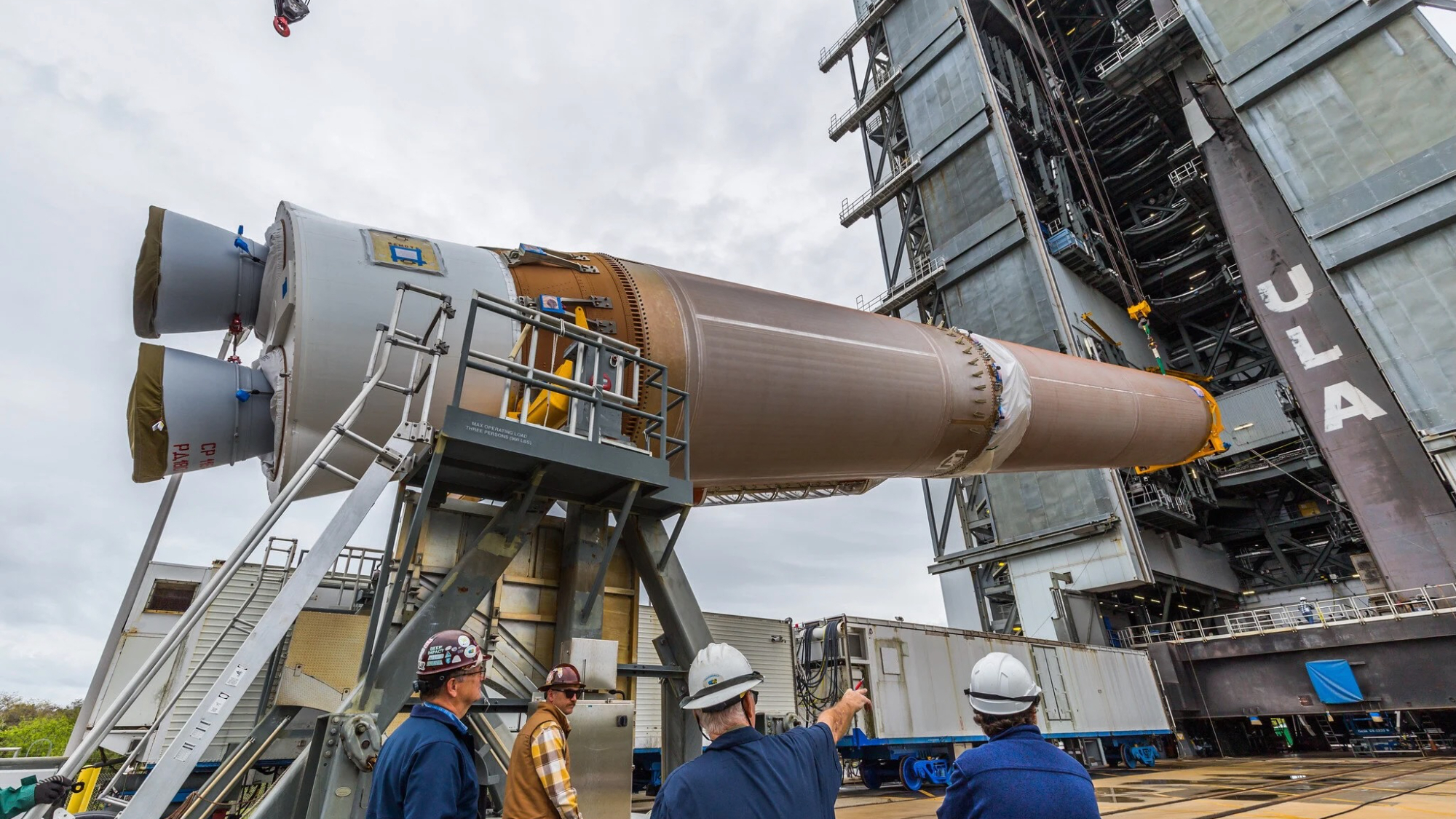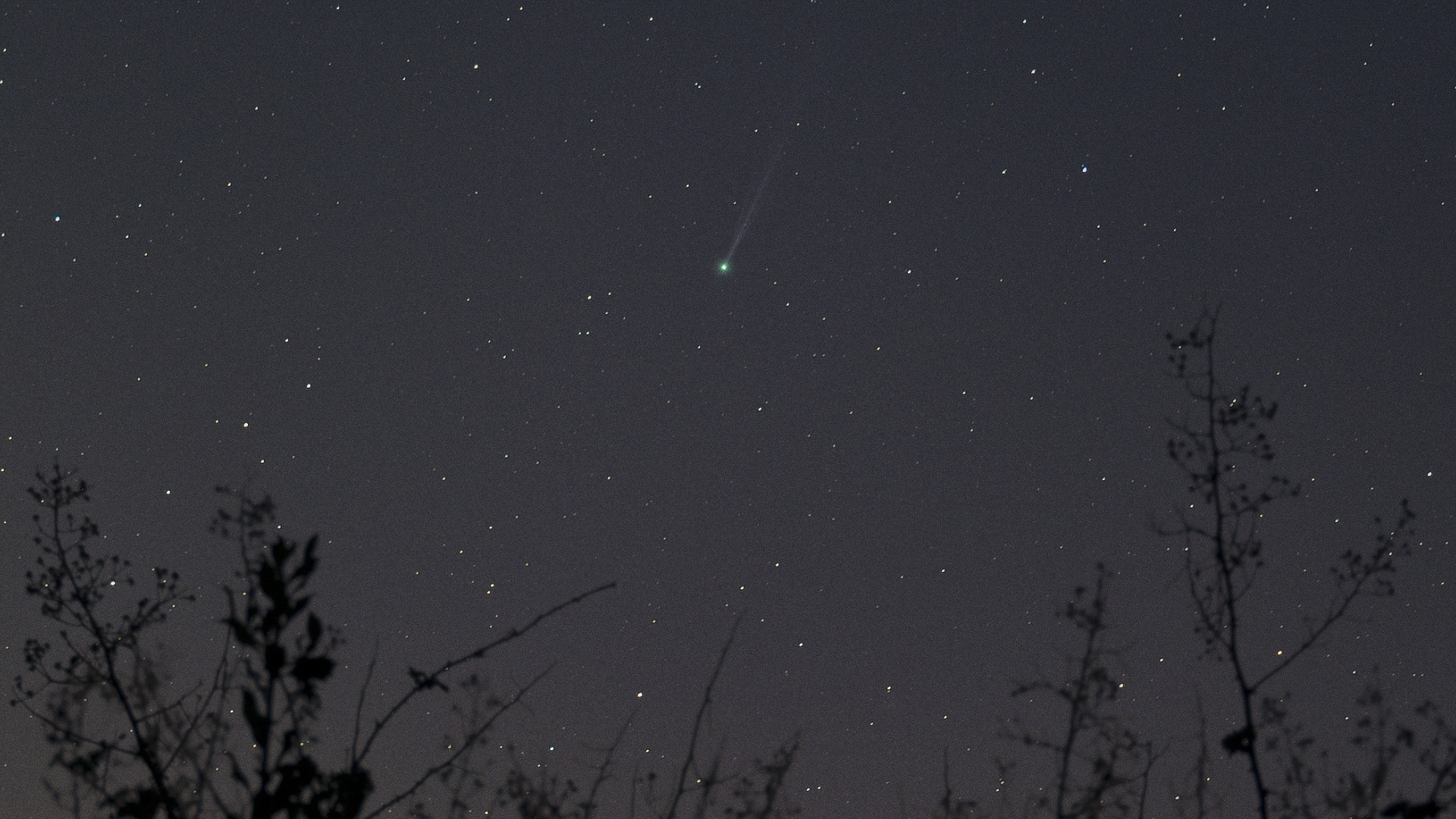Blue Origin Shows Interest in National Security Launches
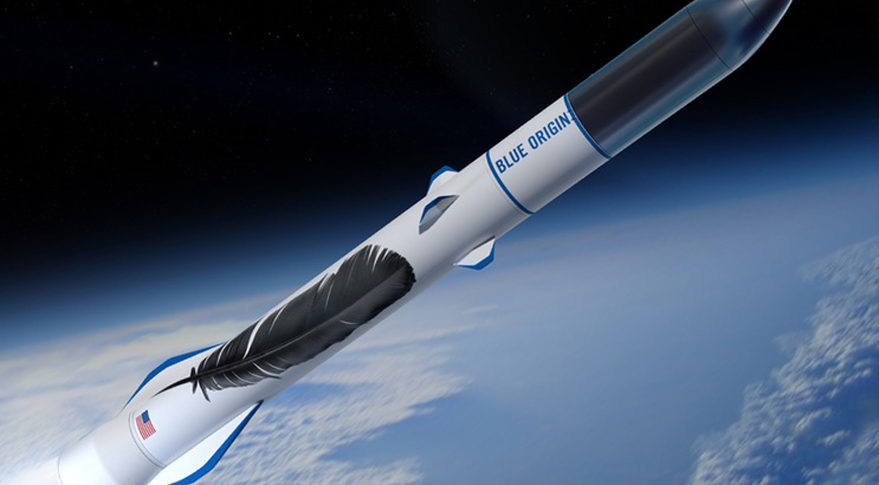
CHANTILLY, Va. — The new chief executive of Blue Origin told the National Space Council his company is in discussions about certifying its New Glenn rocket for government missions, a shift in strategy that could put the company in competition with a customer.
In a presentation to the first meeting of the reconstituted National Space Council at the National Air and Space Museum's Udvar-Hazy Center here Oct. 5, Bob Smith said that the New Glenn rocket the company is developing could be used for both commercial and government missions, the latter requiring the company to go through a certification process with agencies like NASA and the U.S. Air Force.
"Our New Glenn launch vehicle will be more capable than existing launch vehicles flying today, and can be used not only for human spaceflight and other commercial missions, but also for civil and national security payloads," he said. "Therefore, we are in early discussions with the national security community and NASA about how to certify New Glenn for their use." [Blue Origin's New Glenn Rocket in Pictures]
New Glenn, Blue Origin's first orbital launch vehicle, is designed to place up to 45 metric tons into low Earth orbit and 13 metric tons into geostationary transfer orbit. That is a larger capacity than the existing Atlas and Delta vehicles by United Launch Alliance, with the exception of the Delta 4 Heavy, which can place nearly 14 metric tons into geostationary transfer orbit. It's also bigger than SpaceX's Falcon 9, which, like the Atlas and Delta, is certified by the U.S. Air Force for military missions.
To date, Blue Origin has focused on the commercial market for New Glenn. The company has so far signed up three customers, all developers of commercial communications satellites, for New Glenn. The company announced the third customer, Thai startup mu Space Corporation, Sept. 26 at the International Astronautical Congress (IAC) in Adelaide, Australia.
New Glenn is powered by seven of its BE-4 engines in its first stage and one BE-4 engine in is second stage, with an optional third stage using the BE-3 engine first developed for its New Shepard suborbital vehicle. Blue Origin is also offering the BE-4 to ULA for its next-generation Vulcan rocket.
Blue Origin executives, including founder Jeff Bezos, have suggested in the past that the company would not pursue national security missions, which are a cornerstone of ULA's business.
Get the Space.com Newsletter
Breaking space news, the latest updates on rocket launches, skywatching events and more!
"That is ULA's specialty," Bezos said of national security missions during a March 2016 media tour of Blue Origin's headquarters and manufacturing facility in Kent, Washington. "It may be very logical for ULA to continue to be specialized in doing that and we just support them with the engines."
ULA has not yet made a formal decision on what engine to use in Vulcan, although the company has previously stated that the BE-4 is the leading contender versus Aerojet Rocketdyne's AR1. ULA Chief Executive Tory Bruno said in April that he was awaiting the outcome of tests of the BE-4 at Blue Origin's test site in West Texas before officially selecting the engine.
Testing of the BE-4, though, has been delayed by a mishap in May that destroyed an engine powerpack, a key component of a rocket engine that includes the turbomachinery that pumps propellant through the engine. Smith indicated at the National Space Council meeting that those tests could begin in the near future.
"We will soon begin testing our BE-4 engine, which will take New Glenn into space, and is being developed in partnership with United Launch Alliance," he said.
Rob Meyerson, president of Blue Origin, said at the IAC last week that the company has made "measureable progress this year" on the BE-4, but did not elaborate. "We delivered the BE-4 hardware to our West Texas launch site for testing, and have more engines in the pipeline," he said in a presentation there where he announced the mu Space contract.
Smith's testimony at the National Space Council meeting was his first major public appearance since becoming chief executive of Blue Origin. The company had not made a formal announcement regarding hiring him, although Smith joined Blue Origin in August, according to his profile on the professional networking site LinkedIn.
"It's a great privilege to be part of an amazing team that is building reusable launch vehicles, modern powerful rocket engines and all the capabilities that will enable millions of people to live and work in space," Smith states in his LinkedIn profile.
Smith previously worked at Honeywell Aerospace for more than a decade, most recently as president of mechanical systems and components. Before that, he was at United Space Alliance, the joint venture of Boeing and Lockheed Martin that managed space shuttle operations, where he was executive director of the company's space shuttle upgrades development program.
This story was provided by SpaceNews, dedicated to covering all aspects of the space industry.
Join our Space Forums to keep talking space on the latest missions, night sky and more! And if you have a news tip, correction or comment, let us know at: community@space.com.

Jeff Foust is a Senior Staff Writer at SpaceNews, a space industry news magazine and website, where he writes about space policy, commercial spaceflight and other aerospace industry topics. Jeff has a Ph.D. in planetary sciences from the Massachusetts Institute of Technology and earned a bachelor's degree in geophysics and planetary science from the California Institute of Technology. You can see Jeff's latest projects by following him on Twitter.


